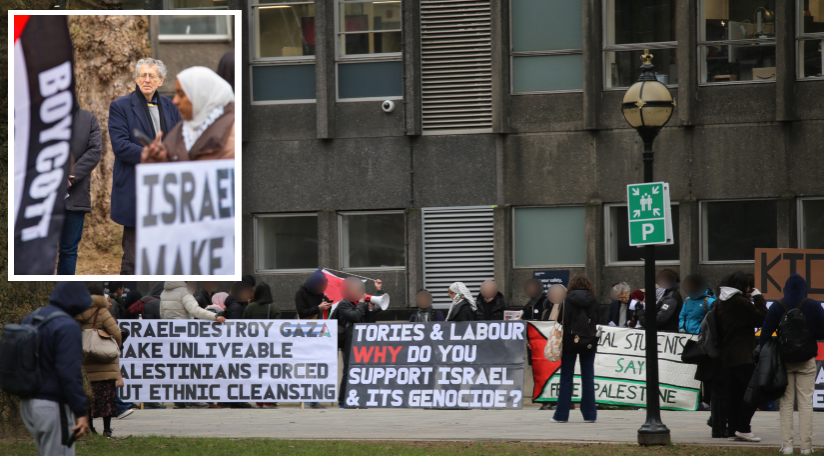Cut ties with weapons companies, students urge Imperial
The activists argue that Imperial’s relationships with Caterpillar Inc., BAE Systems, and Rolls-Royce make it complicit in ‘genocide’.

Students have called on Imperial to cut ties with weapons companies that they allege have fuelled ‘a campaign of genocide by the Israeli Defence Forces [IDF] in Gaza’.
The group – who call themselves ‘ICL Action for Palestine’ – have obtained data on income the College receives from arms trade companies using Freedom of Information requests. They have highlighted Imperial’s ties to three of these enterprises: Caterpillar Inc., BAE Systems, and Rolls-Royce.
Caterpillar, the world’s largest manufacturer of construction equipment, has attracted the ire of human rights groups such as Amnesty International for supplying the IDF with D9 armoured bulldozers, which the IDF has used to bulldoze Palestinian homes.
In an open letter addressed to Imperial, the students argue that ‘Imperial research fuels Caterpillar,’ citing £336,000 Imperial’s Sustainable Energy Technology and Turbomachinery Lab (SETTL) has accepted from the manufacturer to establish the Caterpillar Innovation and Research Centre.
Alongside Caterpillar, they criticise Imperial’s relationships with BAE Systems and Rolls-Royce, British defence companies that have designed parts of the Lockheed Martin F-35 Lightning II, a stealth combat jet that the IDF has deployed in the Gaza Strip.
“I want us to be acutely aware of the real impact of this,” said a student activist, addressing a crowd of around a dozen at a protest on Wednesday. “We as students have a real responsibility to care about this – our money is being used to fund this, and we are complicit in it.”
The group of 20 to 25 students, staff, and external protestors chanted “Imperial College management, shame on you,” and “From the river to the sea, Palestine will be free”. They waved Palestinian flags and held banners, one of which read: ‘Kick out Caterpillar, Stop Israel’s Gaza Genocide’.
“It’s important for me to show that we stand by the Palestinian people and feel their pain,” said a Physics undergraduate participating in the protest. “We want to expose Imperial management for their cooperation with companies that are helping commit this mass murder.”
“We want a free Palestine, we want their suffering to stop.”
Former Imperial College Union President Piers Corbyn – the brother of former Labour leader Jeremy Corbyn – was present at the protest.
ICL Action for Palestine said that it had not invited Corbyn, an anti-vaccine activist and conspiracy theorist, to the protest. It added that his views do not ‘align with the values of our actions and work.’
There is no indication that Imperial has broken the law in its relationships with Caterpillar, BAE Systems, or Rolls-Royce.
The College’s research relationships are governed by its Ethics Code and its Relationship Review Policy. The latter forbids relationships that violate ‘international conventions on human rights’.
Responding to the open letter, BAE Systems and Rolls-Royce both said that they abide by defence export controls.
A BAE Systems spokesperson said: ‘We’re horrified by the situation in Israel and Gaza and the devastating impact it’s having on civilians in the region and we hope it can be resolved as soon as possible. We respect everyone’s right to protest peacefully. We operate under the tightest regulation and comply fully with all applicable defence export controls, which are subject to ongoing assessment.’
A spokesperson for Rolls-Royce said: ‘Rolls-Royce supports the UK Government and its allies in providing power solutions for defence purposes. In doing so, we abide by all applicable export control and sanction laws. In the UK, those regulations demand that exports are considered against a range of criteria including relevant international law.’
Caterpillar did not respond to a request for comment, but in 2012, it responded to similar criticism by telling the BBC that it ‘shares the world’s concern over unrest in the Middle East and certainly [has] compassion for all those affected by political strife’.
Nevertheless, it said it has ‘neither the legal right nor the means to police individual use of its equipment.’









